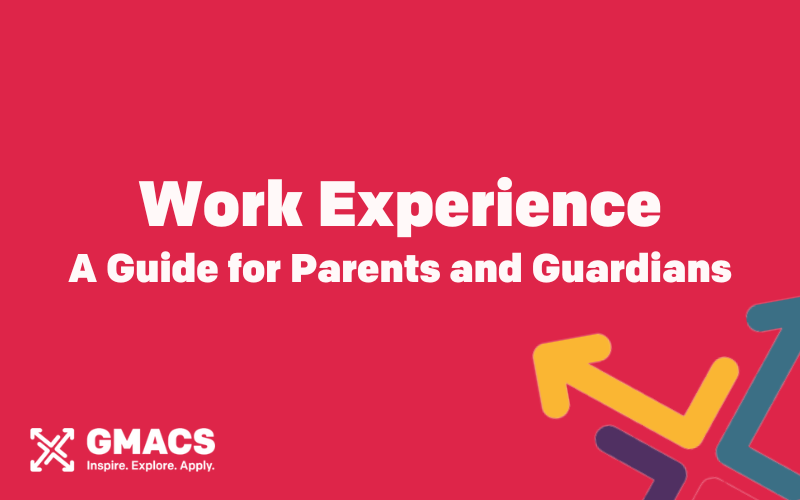Work Experience: A Guide for Parents and Guardians
It may be a few years ago now, but your first memories of working could be from work experience while you were still in school. Maybe it was your first taste of your current career, or maybe you tried something out and thought, ‘there’s no way I’m doing that for a job.’ However you found it, work experience is often very memorable.
Now that you’re supporting your child through the same work experience process, you might be confused or worried that things have changed. You may feel the pressure that your child should be able to make the most of this experience and make memories of their own. But don’t worry, work experience is just about getting a taste of the world of work and trying something out.
Clarifying Goals and Aims
Before you start reaching out to employers, make sure you understand what your child is hoping to do. You may need to help them figure this out.
The best approach is to try and understand why your child wants to choose certain things. Talk to them about the skills they might want to develop or the things they want to experience. Maybe it’s about understanding an office environment or trying out what working outside in construction feels like. The only way to discover this is through an honest conversation. An open and clear discussion on goals and aims should lead you to some clarity and get you ready to plan.

How to find work experience
You might think that the process of how to get work experience has changed a lot since you were at school – but in many ways it’s quite similar. You still need to contact companies yourself, although the process is more digital now, so you’ll likely be emailing. Contacting employers as soon as you can is still the best approach. This could be by email, telephone or in person.
Bear in mind that some companies have very popular work experience programmes, so if your child wants to join one of these they may need to apply through a formal process. This is good experience for them though, so don’t allow this to be a put off!

What’s needed to find work experience?
In some cases, your child may not need any extra materials to get their work experience sorted, except for filling out forms for the school and chosen business. Generally, they’ll need to fill out a diary with some self-reflection on the process and the skills that they’ve learned during the experience.
However, if you do need to apply through a formal work experience process, then your child will likely need a cover letter and a cv or resume. They may even have to go through an interview process. For help, check out our C4L article on how to create a CV that can really display your skills and attributes.
Although this may feel excessive, it’s important to remember that having a CV and a cover letter will soon come in handy. It’s a document they can go on to edit and repurpose for other uses when they’re looking for a part time job. Our GMACS article on how to find a part time job may be of some support if you’ve already begun this process.
Choosing the Right Placement
To choose the right placement, consider what sort of business could offer opportunities that match your child’s thoughts about their potential future career. You could look at small local businesses as well as larger ones. Remember that your child will generally need to attend in person, so the transport does need to work out!
It’s also worth keeping your options open. Having a list of maybe 3 or 4 different employers your child would consider doing their work experience with is a good idea, especially if they’re applying to competitive organisations.
If you’re struggling, a quick search online will provide you with a selection of organisations that provide support to young people regarding work experience. They may be useful resources to use while researching opportunities.
A couple of places that could help are Springpod and Speakers for Schools. Both organisations offer a range of virtual work experiences which could be a great place to start figuring out what your child might want to do. These virtual experiences don’t replace the in-person work experience your child likely has to do through school. However, they could help you narrow down the huge range of options with your child.
At GMACS, we’re trying our best to offer Greater Manchester’s young people all the resources they need to make informed decisions about their future. Having exposure to the working world at an early age is really helpful to start to develop career goals. Plus, it could show your child a career they hadn’t even thought about!


